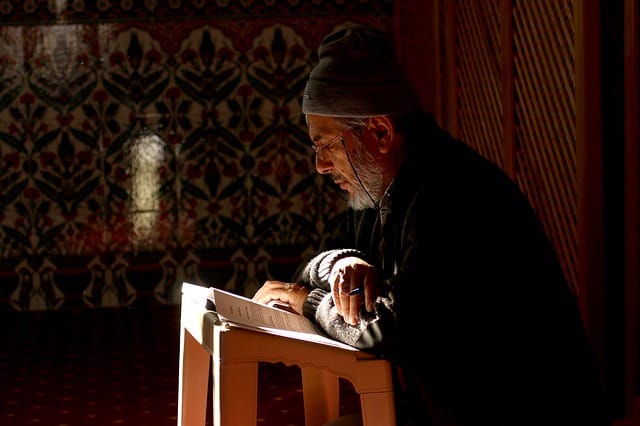Introduction to the Quran
The Quran is the holy book of Islam, revered by Muslims as the literal word of God revealed to Prophet Muhammad. It serves as a comprehensive guide for spiritual growth, moral conduct, and legal principles. Comprising 114 chapters, known as surahs, and 6,236 verses, called ayahs, the Quran addresses a wide array of topics, from theology and law to ethics and human behavior. Written in Arabic, the Quran’s language is considered a miracle in itself, with a unique style and structure that has been meticulously preserved over centuries. Muslims believe that the Quran is the final revelation from God to humanity, making it the ultimate source of guidance and wisdom for all aspects of life.
About the Quran
The Quran is Islam’s holy book, believed by Muslims to be the last and final revelation from Allah (God) to humanity. For over 1400 years the Quran has been the foundation of Islamic belief, practice and spirituality, providing not only spiritual guidance but also the social, moral and legal framework of Muslim life. The Quran has 114 chapters, called suras, which contain verses called ayahs. These chapters cover a wide range of topics including theology, law, morality and human behavior. Muslims believe the Quran to be the literal word of God, revealed in Arabic to Prophet Muhammad (peace be upon him) over a period of 23 years. As the last and most complete revelation the Quran has a special status in Islam as a guide for life, revered for its wisdom, eloquence and spiritual depth. The compilation and preservation of the Quran significantly influenced the broader Muslim world, shaping its political and social dynamics.
Prophet Muhammad
Prophet Muhammad is the main character in the story of the Quran. Born in Mecca in 570 CE, Muhammad was chosen by Allah as the last prophet to deliver His message to humanity. According to Islamic tradition, Muhammad was visited by the angel Gabriel (Jibril) at the age of 40, and it was through Gabriel that Muhammad received the first revelations of the Quran while he was in the cave of Hira. For the next 23 years until his death in 632 CE, Muhammad received and conveyed those revelations to his followers.
Muhammad was illiterate and couldn’t read or write but he memorized the revelations and recited them to his companions. His companions in turn memorized the verses and also wrote them down on whatever was available at that time such as parchment, leaves and bones. Despite being uneducated Muhammad was able to convey the Quranic verses with unmatched eloquence. Muslims believe this to be a miracle and proof of the divine origin of the Quran. As the recipient of this revelation Muhammad’s role was not of an author or compiler but of a messenger who conveyed the words of Allah.
The Quran’s Revelation and Compilation
The Quran was revealed to Prophet Muhammad over a span of 23 years, beginning in 610 CE and concluding in 632 CE. The angel Gabriel served as the divine intermediary, delivering the verses to Muhammad, who would then memorize and recite them to his companions. These companions, in turn, memorized the verses and recorded them on various materials available at the time, such as parchment, leaves, and bones. Despite the Prophet Muhammad’s inability to read or write, he conveyed the Quranic verses with unparalleled eloquence, which Muslims regard as a testament to the divine origin of the Quran.
Following the Prophet Muhammad’s death, the preservation of the Quran became a critical concern. Caliph Abu Bakr, the first successor to Muhammad, recognized the need to compile the Quran into a single, cohesive book. He entrusted this monumental task to Zayd ibn Thabit, one of the Prophet’s scribes, who meticulously collected all the written and memorized verses to create an authenticated copy of the Quran. This compilation ensured that the Quran would be preserved for future generations, maintaining its integrity and authenticity.
Compilation and Standardization of the Quran
After Prophet Muhammad’s death, the preservation of the Quran written during his lifetime became a top priority. Many of Muhammad’s companions had memorized the Quran in full but it was also written down during his lifetime. However, these were scattered among the early Muslim community. After a major battle in which several hafiz (memorizers) of the Quran were killed, Caliph Abu Bakr, the first successor to Muhammad, realized the need to compile the Quran into one written book. He assigned Zayd ibn Thabit, one of Muhammad’s scribes, to collect all the written and memorized verses to form a complete and authenticated copy of the Quran.
This was further formalized during the reign of the third caliph, Uthman ibn Affan, who ordered the production of several copies of the Quran to standardize its recitation and to prevent variations. Uthman’s effort is known as the Uthmanic codex and is considered the official version of the Quran. It was in the Quraysh dialect of Arabic, the dialect of Prophet Muhammad’s tribe and has remained the standard text for all Muslims till today.
The Uthmanic Codex
The Uthmanic codex, compiled around 650 CE, played a crucial role in preserving the Quran. Uthman’s move was prompted by the spread of Islam to non-Arabic speaking regions which raised the question of the transmission of the Quran. By standardizing the text Uthman ensured that Muslims, regardless of their linguistic background, would recite the Quran uniformly. This codex contains all 114 chapters of the Quran in the order we have today and is the version used by Muslims all over the world.
The Uthmanic codex is not just a historical document; it is considered by Muslims to be a miracle of the word of God. Muslims believe that the Quran has remained unchanged since its revelation. The Quran itself contains verses that say God will protect His word from corruption (Quran 15:9) which is the core of Islamic thought.
Early Manuscripts and Textual Criticism
In recent years early Quranic manuscripts have been found which is further evidence of the textual stability of the Quran. Among the most significant are the Sanaa manuscript found in Yemen and the Birmingham Quran manuscript both of which have been radiocarbon dated to 7th century, shortly after the time of Prophet Muhammad. These manuscripts are very consistent with the Uthmanic codex which reinforces the belief that the Quran has been preserved.
Though there are minor variations in early manuscripts these are mostly in orthography or word choice and do not affect the meaning of the text. Muslim scholars have always acknowledged these minor differences but say they do not affect the overall integrity of the Quran. Textual criticism both within the Islamic tradition and by Western scholars confirms that the Quran has remained unchanged for over 1400 years which is considered by Muslims as evidence of its divine protection.
The Quran’s Transmission History
The Quran boasts a rich transmission history, characterized by multiple chains of narration and memorization that have safeguarded its text and meaning. Initially, the Quran was transmitted orally from Prophet Muhammad to his companions, who then passed it on to their students and followers. This oral tradition was complemented by the written preservation of the Quran on various materials, such as parchment, leather, and paper. These manuscripts were meticulously copied and disseminated across the expanding Islamic world.
The transmission history of the Quran is well-documented, with numerous Muslim scholars and historians providing detailed accounts of its preservation and dissemination. Despite the passage of time, the Quran’s text has remained unchanged, a fact that is considered a miracle by Muslims. The Quran’s meaning and interpretation continue to be subjects of study and debate among Muslim scholars and scholars of Islamic studies, ensuring that its teachings remain relevant and accessible to each generation.
Quranic Verses
Quranic verses are not just religious text; they are the living words of God, full of wisdom and guidance for all aspects of life. The Quran covers a wide range of topics from the nature of God and the purpose of life to principles of justice, ethics and morality. For Muslims the Quran is not just a text to read; it is a guide to follow, a source of comfort and inspiration and a means to connect with Allah.
Muslims recite Quranic verses during daily prayers and other acts of worship. Recitation itself is an act of worship and Muslims believe that the Quran has spiritual power. Quranic verses are also memorized in its entirety by millions of Muslims around the world, a practice known as Hifz which is another proof of the importance of the Quran in Islamic life.
The Quran’s Unique Style and Content
The Quran stands out for its unique style and diverse content, setting it apart from other religious texts. Its language is both poetic and rhetorical, employing a rich tapestry of metaphor, allegory, and symbolism. The Quran’s content spans a wide range of topics, including theology, law, morality, and spirituality. It recounts the stories of past prophets and nations, offering lessons and guidance on how to lead a righteous life.
Among the Quran’s verses are those considered miraculous, such as the verse of the Throne (Ayat al-Kursi), which is renowned for its profound and majestic language. The Quran’s distinctive style and content have been the focus of extensive study and analysis, with scholars and researchers striving to understand its deeper meanings and significance. This unique combination of eloquence and depth has cemented the Quran’s status as a timeless and unparalleled guide for Muslims around the world.
Sunni and Shia Views on the Quran
Both Sunni and Shia Muslims consider the Quran as the unchanged and protected word of God. However there are some differences in the tradition of compilation of the Quran between these two major branches of Islam. Sunni Muslims believe that the Uthmanic codex is the final and complete version of the Quran free from any additions or omissions. Shia Muslims also accept the Uthmanic text but historically some Shia scholars have questioned some of the reports regarding the collection process.
Despite these differences the Quran is a unifying text for both Sunni and Shia Muslims. Both sects agree on the Quran as the final source of guidance and have deep respect for the text. Differences in interpretation and subsidiary traditions do not affect the shared belief in the Quran’s sanctity and its role in shaping Islamic theology and practice.
The Challenge of Producing a Similar Book
The Quran presents a challenge to humanity in several verses, asking whoever doubts its divine origin to produce a book like it. This challenge is called tahaddi and is found in several places in the Quran like Surah Al-Baqarah (2:23). Despite many attempts throughout history no one has been able to meet this challenge. Muslims consider the unique language, structure and content of the Quran as evidence of its divine origin which is beyond human capability to produce.
This challenge proves that the Quran is a miracle in Islam not only for its content but for the way it was revealed. The Quran’s language and spiritual and legal guidance has led Muslims to consider it unmatched in human history.
Western Scholars Views on the Quran
Western scholars have been interested in the Quran for long, studying its origins, language and impact on civilization. While many respect the Quran as a sacred text some have questioned the traditional Islamic narrative of its revelation and compilation. These scholars point to the historical context in which the Quran was compiled and suggest that political and social factors may have influenced its preservation.
Despite these criticisms Western academics have also acknowledged the impact of the Quran on Islamic culture and law and its relevance to Muslims. Scholars like Montgomery Watt and Angelika Neuwirth have written extensively on the Quran highlighting its historical, theological and linguistic significance.
Conclusion
The Quran is a central and eternal pillar of Islamic faith, Muslims consider it as the literal word of God revealed to Prophet Muhammad. Its authorship is attributed to Allah and its preservation is a miracle. For centuries the Quran has been transmitted and protected and is a source of guidance, wisdom and spirituality for billions of Muslims around the world.
Whether by faith or scholarship the Quran’s importance cannot be exaggerated. It has shaped empires, inspired millions and is a moral and spiritual guidance for humanity. Who wrote the Quran? Ultimately it goes back to the Islamic belief that it’s not the work of any human but the eternal word of God revealed for all time.








